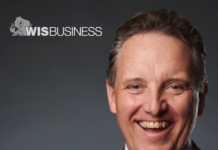An executive with Dairyland Power Cooperative says wind energy coupled with battery storage will be a “monster workhorse” for the western Wisconsin region where the co-op operates.
Kevin Nordt is executive vice president and chief strategy officer for Dairyland, based in La Crosse. He spoke yesterday during a Wisconsin Technology Council event in Madison, focused on the future of the state’s energy system.
He called wind energy a “huge value resource” for the co-op, whose footprint extends across parts of Wisconsin, Iowa, Minnesota and Illinois.
“Solar has very rapid diminishing returns; it’s accelerated very quickly, it’s become very cost-competitive. Wind is even cheaper,” Nordt said yesterday.
He said he expects more solar to be added in the Midwest, but added “the value to the grid of solar rapidly diminishes” as fluctuations in power generation and usage pose challenges for grid operators. Ultimately, he expects wind energy and utility-level batteries will be “the big winners” going forward for the region.
Yesterday’s conversation ranged from the challenging economics of coal-fired generation and the growing role of natural gas in the energy landscape to rising pressure being put on the energy grid from data centers and higher energy demand more broadly.
Todd Stuart, executive director of the Wisconsin Industrial Energy Group, referenced the “huge strain” on the energy grid and noted some planned retirements of coal-fired plants in the Midwest are likely to be delayed.
“You’re shutting off all this coal all across the Midwest, the same time you’re adding all this load that is extraordinary … some of these utilities that maybe shut down their coal plants decades early are perhaps regretting it in the short term, because there isn’t much slack in the system right now,” he said.
Meanwhile, Wisconsin’s Green Fire Executive Director Meleesa Johnson pushed for including more renewables into energy portfolios, noting the harm that climate change could bring to the state economy and its residents.
“I love my job, I love advocating for conservation of resources and protection of our environment. But it seems like I’m on a treadmill going backwards, when we have this conversation only about the cost of energy,” she said. “There’s so much we have to protect and bring into this.”
The conversation also touched on the role of nuclear energy in the state, including the potential for advanced technology in this space — such as small modular reactors — and even the more far-off possibility of utility-scale fusion energy generation.
Robb Hughes, head of external affairs for Realta Fusion, outlined the Madison-based company’s plans for achieving this yet-unrealized breakthrough in nuclear science. While he said the industry is at least five years away from utility applications for fusion, he also touted the safety and limited environmental impact of traditional fission-based nuclear energy.
When asked about a recently introduced bill that would direct the state Public Service Commission to conduct a nuclear power siting study, Hughes said Realta Fusion is “hugely supportive” of the proposal. He previously testified in favor of the Senate and Assembly versions of the legislation.
“I think it’s been really nice to see Republicans in the state Legislature take nuclear power seriously,” he said. “I know it’s been a hot-button issue, but broadly, nuclear power is pretty bipartisan. So I think that’s a really good step in the right direction.”
Still, he argued more will need to be done to pave the way for more nuclear power in the state, including tax incentives and funding for siting efforts.
Gov. Tony Evers in his latest state budget proposal called for $1 million to study siting a new nuclear plant and expanding an existing research credit to cover nuclear power. He told WisPolitics in an interview earlier this year that he’s been thinking about bolstering nuclear energy in the state “frankly for years.”
Nordt yesterday also said Dairyland is still in the early stages of exploring applications for small modular reactors or SMRs, which could be deployed in a more flexible manner than traditional nuclear plants.
“We are very much monitoring and looking at promising SMR technologies, and if Realta or somebody makes a quantum leap and jumps ahead, we’ll be all over that,” Nordt said.







